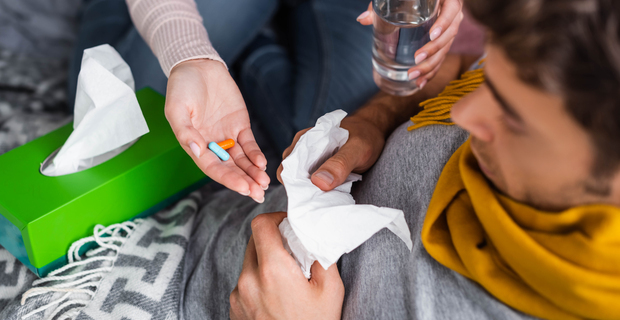Cold & flu
The truth about taking antibiotics for colds
Antibiotics don’t treat the common cold, and taking them unnecessarily can cause harm. Learn when they’re truly needed and how to treat cold symptoms the right way.

Cold & flu
Antibiotics don’t treat the common cold, and taking them unnecessarily can cause harm. Learn when they’re truly needed and how to treat cold symptoms the right way.